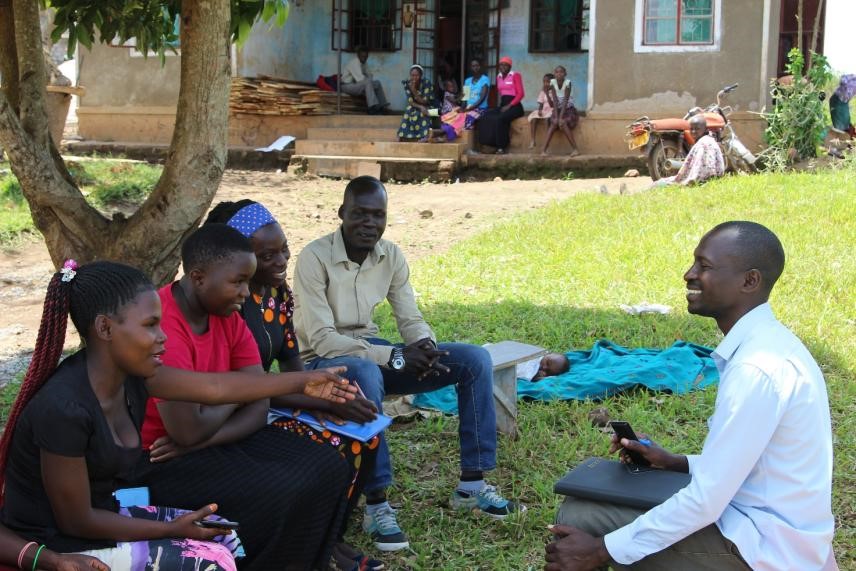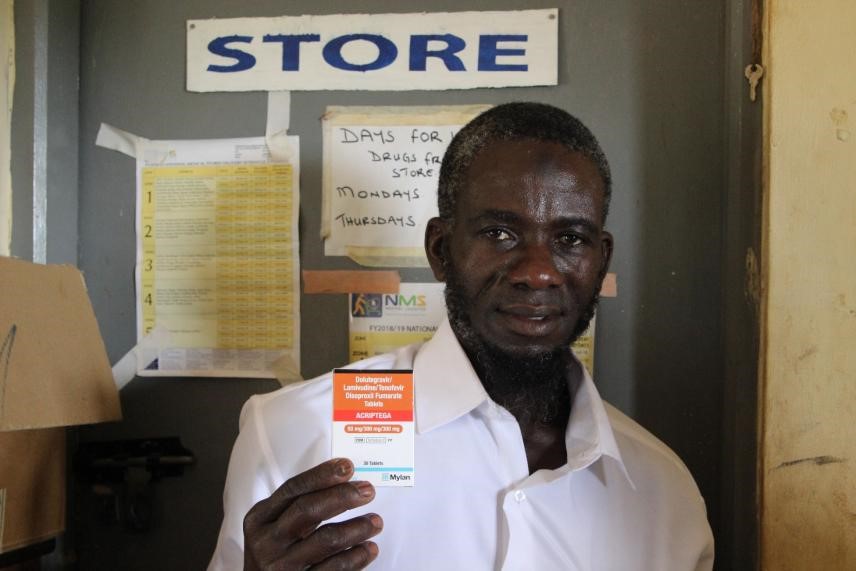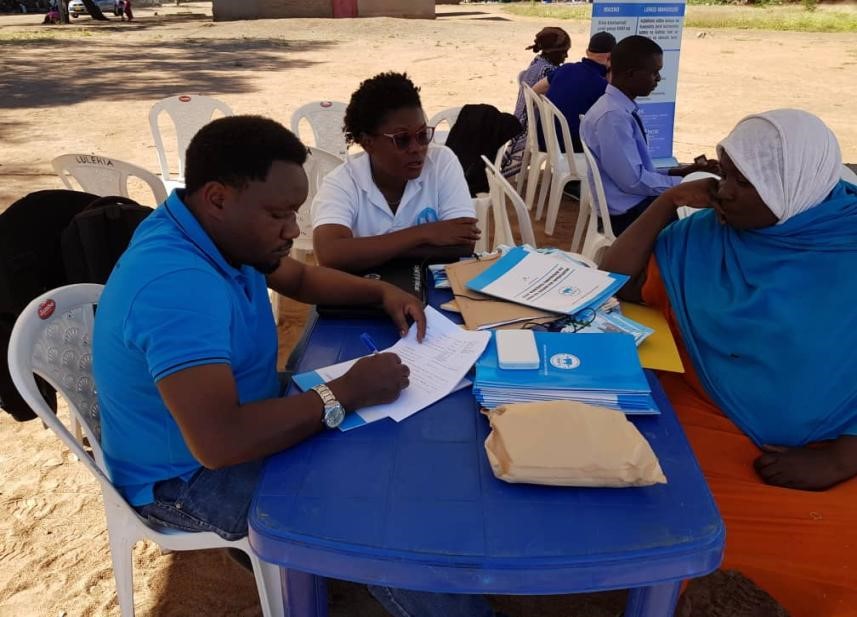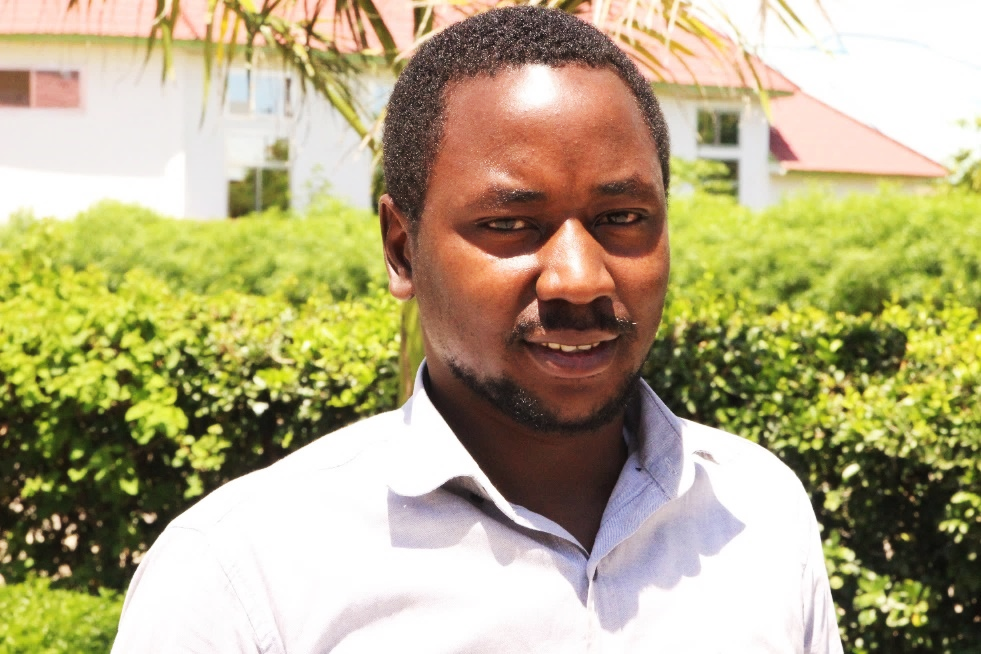In sub-Saharan Africa, adolescent girls and young women aged 15 – 19 years account for 74 percent of new HIV infections.
Adolescent girls and young women are more vulnerable to HIV because they are often exposed to a range of gender and age-based biases, including sexual and gender-based violence (SGBV), forced marriage and trafficking. The lack of adequate knowledge about HIV prevention, combined with the limited health and legal HIV-related services (including on SGBV), are the significant drivers of the HIV epidemic and present high risks to women and girls in particular.
Communities play an essential advocacy role in ensuring that human rights are respected and that decision-makers and implementers are held accountable. Despite increasing responses to HIV generally, adolescent girls and young women and their communities often do not have the capacity, voice and power to hold HIV-related service providers accountable for their delivery.
Under the DREAMS Innovation Challenge, IDLO worked with civil society organizations in Uganda and Tanzania to meet the urgent, complex needs of adolescent girls and young women. Through an innovative blending of legal empowerment and social accountability strategies at national, district and local levels, the program addressed the drivers of gender inequality and HIV vulnerability. IDLO and its partners applied legal empowerment and social accountability in a mutually reinforcing manner that leveraged the positive aspect of both approaches. Through the innovation, IDLO was able to train adolescent girls and young women to identify, claim their rights and seek to hold service providers accountable through community driven processes in accessing HIV prevention services.
Through implementation of the project, IDLO engaged community members and stakeholders across the justice chain who work at the intersection of health and gender to promote access to justice for all.
Testimonials from partners:
|
In Uganda, IDLO provided technical and financial support to partner organizations conducting training and awareness-raising activities for adolescent girls and young women. The training aimed to cultivate community advocates and paralegals among the adolescent girls and young women to serves as change agents in their communities. “Before the project, we heard of girls being violated but we did not know what to do. We did not have information on how to support our friends. We did not know where to obtain health services or what to do when we reached a police station. We were unaware of our rights and we felt lost and powerless. Sexual violence used to be stigmatized and girls were blamed for being violated,” stated one of the young women trained to become a community health advocate. “Through the trainings, we learned about the health and legal services that girls can access in case of violation. I am now confident to demand that the health and legal services that I am entitled to are provided to me.” |
 |
|
|
To motivate and engage the community in ensuring access to quality HIV and health services for adolescent girls and young women, under the Dreams Innovation Challenge, village health committees were tasked with mobilizing communities, so that they could access the training and sensitization sessions organized by the project. Members of the village health committees were also trained under the program on HIV-related issues and SGBV. In the Kyampisi sub-county in Uganda, the Chair of the village health committee, noted: “Before the project, girls use to fear health centers. They felt judged by the health workers and they certainly did not go to the police. All of this has now changed. The adolescent girls and young women in our villages are aware of the services available. Young women do not fear health centers anymore and the sensitization campaigns supported by the project has significantly changed the attitude of health workers.”
|
|
In Tanzania, the project was implemented in the districts of Shinyanga and Kahama. In both districts the incidence of sexual and gender-based violence, child marriages, teen pregnancies and HIV prevalence is generally higher than other parts of the country. “We noticed that SGBV was an epidemic within the region. A patriarchal culture, combined with limited awareness on HIV and SGBV as well as poverty, were identified as the leading causes of these records," remarked a project coordinator with IDLO’s national partners speaking about the challenges in Shinyanga and Kahama.
|
|
|
|
The project engaged a range of stakeholders across the justice chain to ensure the firm link between HIV-related services and sexual and gender-based violence. Speaking about the role of the judiciary, a Magistrate at the Shinyanga Primary Court in Tanzania, noted: “Many magistrates, including myself, attended the exercise organized in the district. We also benefitted from the trainings. I personally learned a lot in terms of HIV, including the requirements of the HIV and AIDS Prevention Act. In one phrase, I can clearly say that this training allowed us to improve the administration of justice." |
IDLO'S WORK ON HIV
The shrinking space for civil society to advance access to justice highlights the importance of Sustainable Development Goal (SDG) 16 as a cross-cutting goal for the achievement of the health-related SDGs, leaving no one behind.
IDLO has been working with communities and delivering technical and financial support for rights-based approaches to public health challenges since 2009, with a special focus on HIV-related legal services. With support from the OPEC Fund for International Development (OFID) and the Ford Foundation, IDLO has strengthened HIV-related legal services in more than 18 countries across Africa, Asia, and Latin America. In addition to the DREAMS program, in 2017, IDLO collaborated with UNAIDS to implement a pilot project to build law school capacity and produce legal clinic handbooks in Tanzania and Uganda to ensure new graduates understand HIV and the role of the law in the national and global response.
In collaboration with UNAIDS and the United Nations Development Programme, IDLO developed a Toolkit: Scaling Up HIV-related Legal Services, designed to support initiatives to train lawyers in providing quality legal services for people living with HIV and other affected populations. IDLO published Equal Rights, Equal Treatment, Ending AIDS in 2017 – a summary of IDLO’s program to strengthen and expand HIV-related legal services and rights in Latin American and Middle East / North Africa.




